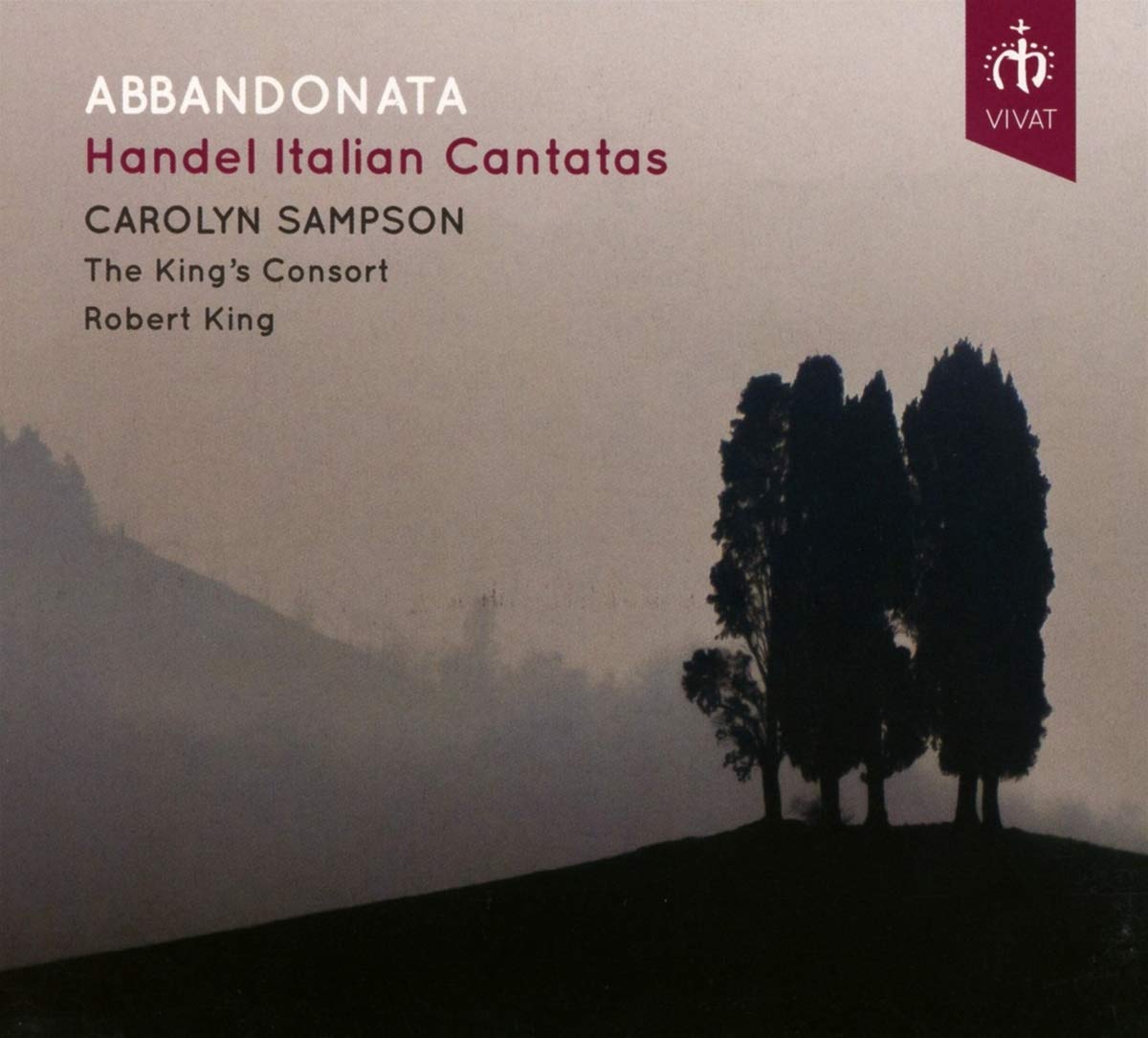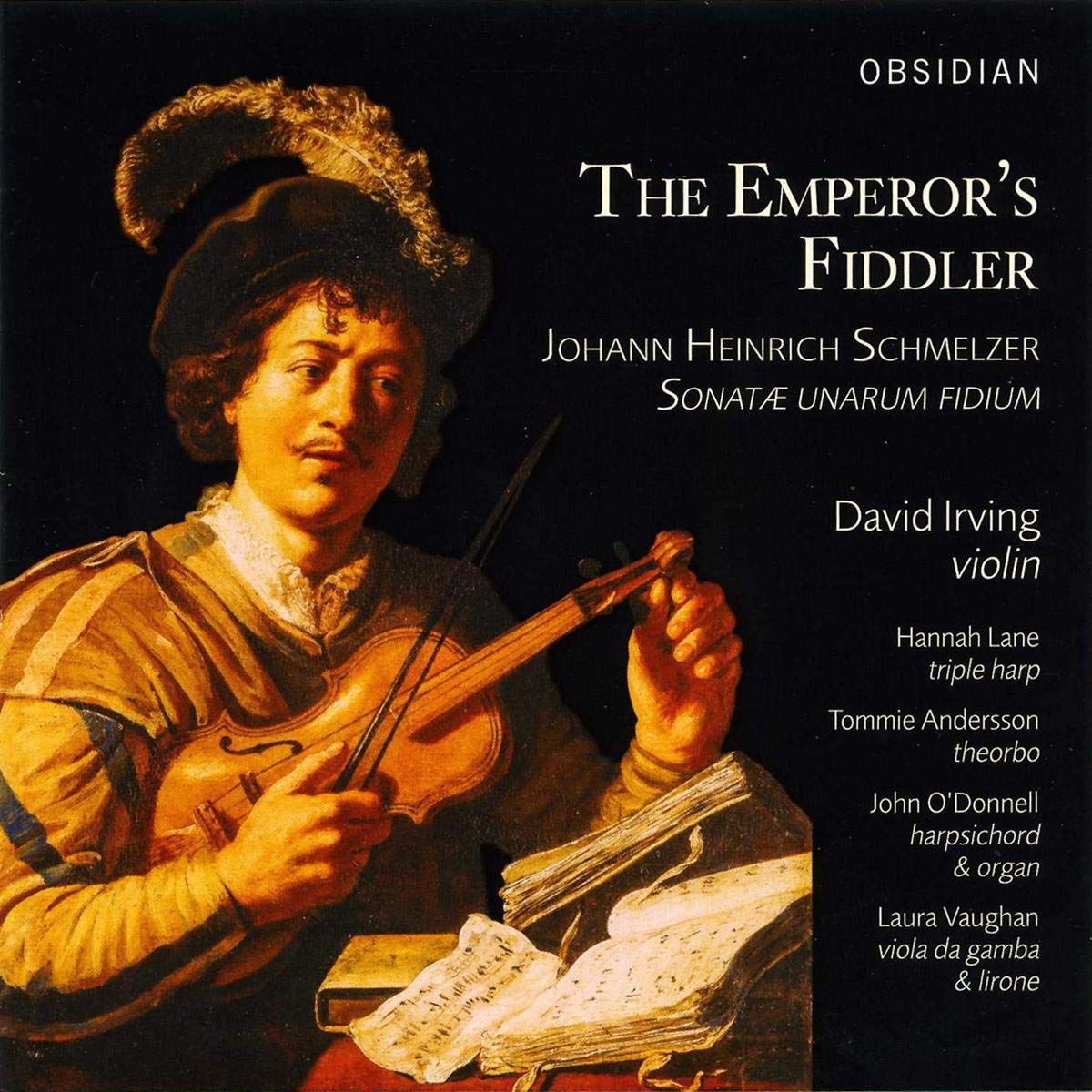 Abbandonata: Handel Italian Cantatas Carolyn Sampson (soprano), The King’s Consort/Robert King (Vivat)
Abbandonata: Handel Italian Cantatas Carolyn Sampson (soprano), The King’s Consort/Robert King (Vivat)
The young Handel’s desire to be an opera composer prompted him to spend the years 1706-1710 in Italy. He was already a superb academician and master of counterpoint, but a colleague recorded that Handel felt that his melodic gifts needed honing. Where better to go than Italy? There, he composed much church music, a couple of successful operas and scores of chamber cantatas. These were mostly written in Rome – a city in which opera had been banned by papal decree as penitence for an earthquake in 1703, but where the cantata flourished. One witness recalled Handel’s talents in the following terms: “There has arrived in this city a Saxon who is an excellent harpsichordist and composer and who gave a demonstration on the organ… which astounded everyone.” Four of the surviving cantatas are sung here by soprano Carolyn Sampson. They’re effectively miniature operatic scenes, Handel cramming each one with musical and dramatic event. Armida abbandonata features an enchantress abducting a knight en route to the Crusades. Sampson is superb and invokes sympathy and awe, especially when vainly attempting to convince the elements to wreak revenge upon the man she loves. Tra le fiamme is an exquisite retelling of the Icarus myth, the doomed escapee’s delight at flying for the first time beautifully described. It all ends badly, of course: “for one who is not born a bird, flying is a miracle, and falling is the usual outcome.”
Figlio d’alte speranze is a rags-to-riches tale whose high-status hero is reduced to gardening, later given the throne after the intervention of Alexander the Great. Agrippina condotta a morire is the most ambitious and elaborate cantata here, Sampson’s portrayal of a ruthless Roman empress as witty as it is exciting. She can do it all, invoking fear, fury and sympathy, her voice retaining its allure even when she’s singing at full tilt. She gets sensitive, vivid accompaniments from Robert King’s classy backing band, and Vivat’s exemplary documentation includes full texts and translations – a winner.
 Tesla Quartet: Haydn, Ravel, Stravinsky (Orchid Classics)
Tesla Quartet: Haydn, Ravel, Stravinsky (Orchid Classics)
That Ravel’s F major String Quartet was completed as long ago as 1903 is hard to believe; this iconic piece of 20th century chamber music still sounds dazzlingly original, and probably too original for its time. Fauré wasn't impressed, and a contemporary American critic thought that the work had “as much emotional nuance… as a problem in algebra”. Debussy recognised how special Ravel's talent was, advising him not to change a note. This performance, included on the debut recording by the New York-based Tesla Quartet, is a zinger: bright, colourful and rhythmically taut. Ravel was an Impressionist, but that doesn’t mean that his music should sound hazy and diffuse. The quartet's introduction is so well shaped, and the haunting theme two minutes in is magnificently done, cello and violin speaking as one. The scherzo's pizzicato notes have the right guitar-like resonance, and the slow movement is exquisite, giving the lie to the accusation that Ravel was a cool-hearted technician. Really, really impressive, and it’s accompanied by violinist Ross Snyder’s idiomatic transcriptions of three short piano pieces. The Menuet antique works especially well.
As does Snyder’s take on the Menuet sur le nom d’Haydn, the perfect prelude to Haydn's Op. 54 No. 2. Inevitably the first violin line dominates, though Snyder doesn't hog the limelight, knowing just when to step back. The slow movement's cloudy opening is warm and sonorous, Haydn pitting it against an improvisatory violin line. There's a moving surprise in Haydn's finale, when the Presto abruptly melts away and we return to a thoughtful Adagio. Wonderful music, 20 minutes of sheer pleasure. The Teslas also give us Stravinsky's pungent 1922 Concertino, its metrical challenges surmounted with aplomb. Warmly recorded and well-annotated to boot.
 The Emperor’s Fiddler David Irving (violin) (Obsidian)
The Emperor’s Fiddler David Irving (violin) (Obsidian)
One Johann Heinrich Schmelzer was the musician of choice of Emperor Leopold I in 17th century Austria. Described as “the famous and just about foremost violinist in all of Europe” by a contemporary, Schmelzer rose from humble beginnings in provincial Austria and was first employed by the court of the Holy Roman Empire as an adolescent in the mid-1630s. He composed sacred vocal music and chamber works, pleasing Leopold so much that he was ennobled and eventually promoted to the position of Kapelmeister in 1679, a rare honour for a non-Italian musician. Poor Schmelzer died of the plague a year later and was buried in an unmarked Prague grave. Australian baroque violinist David Irving believes he's worthy of exhumation and performs a selection of Schmelzer sonatas on this appealing disc, accompanied variously by theorbo, harp, viola de gamba and a sonorous chamber organ. It's the organ (played here by John O’Donnell) which lends much of this music an irresistible grandeur, completely befitting an imperial court.
That there's still plenty of fascinating music ripe for rediscovery is borne out by what we hear here. At his best, Schmelzer was a superb melodist: sample the “Sonata secunda” from his Sonatæ unarum fidium of 1664, a sequence of meltingly attractive variations playing out over an ostinato bassline. Harpist Hannah Lane adds a delicious touch of colour. O’Donnell’s and Irving’s notes are essential reading, the latter’s a concise and entertaining guide to bow holds, equal tension string and the intricacies of tuning baroque instruments, complete with eye-popping graphics. O’Donnell also throws in a wonderful little organ passacaglia by Johann Caspar Kerll.













